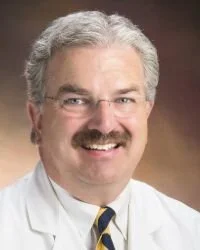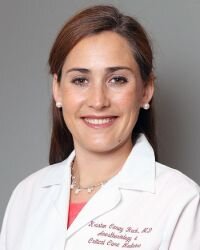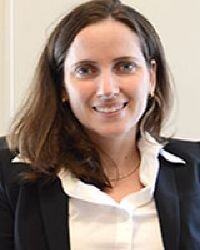
Faculty Fellows
Dr. Stacey Ake
Drexel University
Dr. Stacey Ake is Associate Teaching Professor of Philosophy in the Department of English and Philosophy at Drexel University and the Co-Director of the Certificate Program in Medical Humanities. She received her doctorate in Biology and her doctorate in Philosophy from Penn State University. Her areas of research in philosophy include semiotics (Pierce, Percy), existentialism (Kierkegaard), existential ethics (Bonhoeffer), and theology (Chesterton, Derrida, MacDonald, Zizek). Her interests in biology include population genetics, evolutionary theory, and the co-evolution of bacterial pathogenicity and human immune response. Her interstitial interests include biosemiotics, the creation of a lived or existential philosophy of mind as found at the intersection of neuroscience and psychology, and the elucidation of a realetik vis-a-vis the biological and metabiological natures of human reality.
Dr. Jim Callahan is Associate Medical Director of the Division of Emergency Medicine at Children’s Hospital of Philadelphia and is Professor of Clinical Pediatrics at the Perelman School of Medicine at the University of Pennsylvania. His scholarship focused on injury and trauma, wound management, emergency evaluation and care, and pediatric HIV Care. He received his medical degree from State University of New York Upstate Medical University and has been in practice for more than 20 years. Dr. Callahan serves on the Faculty Advisory Committee for Collegium’s Medical Humanities Fellowship.
Dr. Jim Callahan
University of Pennsylvania
Dr. Fraser Fleming
Drexel University
Dr. Fraser Fleming is Professor of Organic Chemistry and Head of the Department of Chemistry at Drexel University in Philadelphia. He was born in Waipawa, New Zealand, moving to Canada after his undergraduate degree to obtain a Ph.D. in organic chemistry. His graduate advisor introduced him to science and religion which became a strong passion. He began his academic career at Duquesne University in Pittsburgh where he spent 20 years in the chemistry department. In 2013 he took a two-year position as a Program Director in the Division of Chemistry at the National Science Foundation. Although his primary research lies in organic chemistry with a focus on developing new reactions, he has a long-term interest in science and religion. He has taught several courses on science and religion including a study abroad course, has given presentations on the intersection of science and religion, and published The Truth About Science and Religion: From the Big Bang to Neuroscience in 2016.
Dr. Kristen Carey Rock is Associate Professor of Clinical Anesthesiology and Critical Care at the Perelman School of Medicine at the University of Pennsylvania and practices general anesthesiology and intensive care medicine. She is also the associate program director for the anesthesia critical care medicine fellowship. Dr. Rock graduated from Villanova University with a BA in Philosophy and a BS in Biology and graduated from Harvard Medical School in 2009. Her clinical and research interests include end-of life care, clinical medical ethics and medical education.
Dr. Kristen Carey-Rock, MD
University of Pennsylvania
Anthony A. Luberti, MD MSIS
University of Pennsylvania
Dr. Tony Luberti is an attending pediatrician at The Children’s Hospital of Philadelphia (CHOP) and Clinical Professor in Pediatrics at the Perelman School of Medicine at the University of Pennsylvania. He received his MD from Penn and a Masters Degree in Information Science from Penn State University. Tony has been actively caring for infants and children and teaching pediatric residents for the past 25 years at CHOP. He has more than 15 years of experience with the implementation and optimization of several Electronic Health Record (EHR) systems at CHOP, and is currently medical director of informatics education in the Department of Biomedical and Health Informatics and founder and program director of the Clinical Informatics Fellowship Program at CHOP. Tony was also the founding medical director of CHOP’s Nurse Triage Program and is active in CHOP’s Global Health Program where he and colleagues from the Botswana-UPenn Partnership have focused efforts in enabling healthcare through technology in resource-limited countries, as well as informatics capacity building and curriculum development in both Botswana and the Dominican Republic. He has been a spiritual director and mentor to many and is formation director of a local Philadelphia chapter of the Secular Order of Discalced Carmelites.
Jesus Fernandez-Villaverde, Ph.D. is the Howard Marks Presidential Professor of Economics at the University of Pennsylvania. He also serves as Research Associate, National Bureau of Economic Research and Research Affiliate, Centre for Economic Policy Research. Fernandez-Villaverde’s scholarly interests lie in the formulation, efficient computation, and estimation of dynamic equilibrium models. He has held academic and research appointments at Duke University, Yale University, NYU, and Princeton University and he has been a visiting scholar at the Federal Reserve Banks of St. Louis, Minneapolis, Philadelphia, and Atlanta. His book Macroeconomics: A Dynamic Approach, co-authored with Dirk Krueger (Penn), is forthcoming from Princeton University Press. He received his Ph.D. from the University of Minnesota and two undergraduate degrees from ICADE, Spain. He is the co-founder and vice-president of the Catholic Research Economists Discussion Organization (CREDO).
Dr. Jesus Fernandez-Villaverde
University of Pennsylvania
Dr. Margaret Hogan
University of Pennsylvania
Dr. Margaret Monahan Hogan is the founding executive director of the University of Portland’s Garaventa Center for Catholic Intellectual Life and American Culture. She is a former faculty member in the University of Portland’s Philosophy Department, and the inaugural McNerney-Hanson Endowed Chair in Ethics. Her scholarship engages topics at the intersection of moral philosophy and the Catholic tradition, including war and resistance, medical ethics, marriage and economic relationships. She is past president of the Center for Academic Integrity at the Keenan Institute of Duke University and a Fellow at the Notre Dame Center for Ethics and Culture.
David Skeel is the S. Samuel Arsht Professor of Corporate Law at the University of Pennsylvania Law School. He is the author of The New Financial Deal: Understanding the Dodd-Frank Act and Its (Unintended) Consequences (Wiley, 2011), Icarus in the Boardroom (Oxford, 2005) and Debt’s Dominion: A History of Bankruptcy Law in America (Princeton, 2001), as well as numerous articles and other publications. He has been interviewed on The News Hour, Nightline, Chris Matthews’ Hardball (MSNBC), National Public Radio, and Marketplace, among others, and has been quoted in the New York Times, Wall Street Journal, Washington Post and other newspapers and magazines. Skeel has received the Harvey Levin award three times for outstanding teaching, as selected by a vote of the graduating class, the Robert A. Gorman award for excellence in upper level course teaching, and the University’s Lindback Award for distinguished teaching. In addition to bankruptcy and corporate law, Skeel also writes on sovereign debt, Christianity and law, and poetry and the law, and is an elder at Tenth Presbyterian Church in Philadelphia. Skeel’s latest book, True Paradox: How Christianity Makes Sense of a Complex World, was the subject of joint Collegium Institute and Veritas Forum Event on 10/22/14.
David Skeel, J.D.
University of Pennsylvania
Dr. Jonathan Klick, J.D.
University of Pennsylvania
Dr. Klick is Professor of Law at the University of Pennsylvania Law School. He holds both a J.D. and Ph.D. in Economics. His work focuses on identifying the causal effects of laws and regulations on individual behavior using cutting-edge econometric tools. Specific topics addressed by Klick’s work include the relationship between abortion access and risky sex, the health behaviors of diabetics, the effect of police on crime, addiction as rational choice, how liability exposure affects the labor market for physicians, as well as a host of other issues. His scholarship has been published in numerous peer-reviewed economics journals, including The Journal of Economic Perspectives, The Journal of Law & Economics, The Journal of Law, Economics, and Organization, and The Journal of Legal Studies. He has also published papers in The Stanford Law Review, The Columbia Law Review, and The University of Chicago Law Review. He currently holds the Erasmus Chair of Empirical Legal Studies at Erasmus University-Rotterdam.
Dr. Moyer is Associate Professor of History at the University of Pennsylvania. She specializes in the intellectual and cultural history of Renaissance Europe, especially sixteenth-century Italy. Her current work focuses on the study of culture and the formation of cultural identity in sixteenth-century Tuscany. Moyer’s previous work includes a cluster of three related book-length research projects with overlapping themes related to music, mathematics, and the relationship between the arts and the sciences in Renaissance Europe: Musica Scientia: Musical Scholarship in the Italian Renaissance (Cornell University Press, 1992); Raffaele Brandolini On Music and Poetry (MRTS, 2001); and The Philosophers’ Game: Rithmomachia in Medieval and Renaissance Europe (University of Michigan Press, 2001). Professor Moyer is one of four Executive Editors of the Journal of the History of Ideas, part of an editorial team that also includes Warren Breckman of Penn, Martin Burke of CUNY, and Anthony Grafton of Princeton. The JHI is published by Penn Press, and its offices are on the Penn campus.
Professor Moyer serves as Executive Director of the Renaissance Society of America, and she is the faculty moderator of the weekly Renaissance Latin Workshop, sponsored by the Collegium Institute.
Dr. Ann E. Moyer
University of Pennsylvania
Dr. Elizabeth M. Woodward
University of Pennsylvania
Dr. Elizabeth M. Woodward is Clinical Assistant Profession in the Department of Biomedical Sciences in the School of Veterinary Medicine at the University of Pennsylvania. She received her doctorate in Veterinary Science from the University of Kentucky. Before her current appointment, she served as a postdoctoral research scholar in the Reference Andrology Laboratory of the University of Pennsylvania’s School of Veterinary Medicine (New Bolton Center). Her research focuses on equine reproduction, innate immunity, and endometritis, and her teaching for Collegium cultivates reflection on the relationship between science and fundamental questions of human life.
Dr. Ralph M. Rosen
University of Pennsylvania
Dr. Ralph M. Rosen is Vartan Gregorian Professor of Humanities in the Department of Classical Studies. Dr. Rosen graduated from Swarthmore College with a B.A. in Greek and Latin and received his Ph.D. in Classical Philology from Harvard University. He publishes broadly in various areas of Greek and Roman literature, with special interests in comic and satirical literary genres, comparative poetics, ancient aesthetics, and ancient medicine, especially Galen. He is cofounder of the Penn-Leiden Colloquia on Ancient Values, and coeditor of five published volumes (Brill) of essays from these events. Among his other books are Making Mockery: The Poetics of Ancient Satire (Oxford, 2007), the co-edited collections Ancient Concepts of the Hippocratic (Brill, 2016), and Hip Sublime: Beat Writers and the Classical Tradition (OSU Press, 2018) He is also co-editor of the forthcoming Oxford Companion to Galen and Aristophanes and Politics: New Studies (Brill/Columbia). He is currently working on various projects on Hippocrates, Galen, Aristophanes, and Old Comedy, and is serving as Interim Associate Dean for Graduate Studies in the School of Arts and Sciences and Faculty Director of Riepe College House.
Stephanos Bibas is a judge on the United States Court of Appeals for the Third Circuit. Before his appointment to the bench, Bibas was a Professor of Law and Criminology at the University of Pennsylvania and Director of Penn’s Supreme Court Clinic. He holds degrees from Columbia, Oxford, and Yale. Bibas studies the powers and incentives that shape how prosecutors, defense counsel, defendants, and judges behave in the real world of guilty pleas. His 2004 paper, “Plea Bargaining Outside the Shadow of Trial” (Harvard Law Review), explored the agency costs, structural forces, and psychological biases that cause plea bargaining to deviate from expected trial outcomes. He also studies the divorce between criminal procedure’s focus on efficiency and criminal law’s interest in healing victims, defendants, and communities. His book, The Machinery of Criminal Justice (Oxford, 2012), explains how criminal justice should do more to encourage acceptance of responsibility, remorse, apology, and forgiveness. As director of Penn’s Supreme Court Clinic, Bibas litigated a wide range of Supreme Court cases. He and his co-counsel won a landmark victory in Padilla v. Kentucky in 2010, persuading the Court to recognize the right of noncitizen defendants to accurate information about deportation before they plead guilty. His academic work played a central role in the Supreme Court’s landmark case of Blakely v. Washington.
Judge Stephanos Bibas, J.D.
University of Pennsylvania
Dr. Karen Detlefsen is Professor of Philosophy and Education and the Director of the Integrated Studies Program at the University of Pennsylvania. She holds a PhD in Philosophy from the University of Toronto. Her research explores 17th and 18th century natural philosophy, with a particular focus on the philosophy produced by women during this period, as well as the changing shape of the history of philosophy. She has received grants from the National Science Foundation, the American Council of Learned Societies, the Australian Research Council, and the Social Sciences and Humanities Council of Canada. She also has interests in community engagement, bringing philosophy into high school and middle school classrooms in the Philadelphia Public School District. Her goal over the course of the next few years is to develop philosophy curricula for children from kindergarten to grade 12.
Dr. Karen Detlefsen
University of Pennsylvania
Dr. Peter Dodson
University of Pennsylvania
Peter Dodson, B.Sc., M.Sc., Ph.D. is Professor of Anatomy in the Department of Animal Biology in the University of Pennsylvania’s School of Veterinary Medicine, as well as Professor of Paleontology in the Department of Earth and Environmental Science at Penn’s School of Arts and Sciences. Dodson has conducted extensive field work in paleontology in the United States, Egypt, Madagascar, Argentina, and especially China, discovering and describing multiple new dinosaurs in the process. He is co-editor of The Dinosauria, which is a definitive scholarly resource on dinosaurs, and the author or co-author of more than one hundred academic papers and books, including The Horned Dinosaurs (Princeton, 1996). A research associate of the Academy of Natural Sciences and a member of the advisory committee for the Institute for Religion and Science, Dodson has taught a broad range of courses in geology, history, history and sociology of science, and religious studies for more than three decades at Penn. In 2011 he received a Lindback Distinguished Teaching Award.
Michael J. Lewis, Ph.D. is Faison-Pierson-Stoddard Professor of Art History at Williams College. Lewis received his B.A. from Haverford College, and after two years at the University of Hannover, Germany, received his Ph.D. from the University of Pennsylvania. He has taught American art and architecture at Williams College since 1993, and has held visiting positions at Bryn Mawr College, McGill University, and the University of Natal, South Africa. His books include Frank Furness: Architecture and the Violent Mind (2001), The Gothic Revival (2002), and American Art and Architecture (2006). In 1995 he received the Society of Architectural Historians’ Alice Davis Hitchcock award for his book August Reichensperger: The Politics of the German Gothic Revival, which was based on his dissertation. Among his research interests are architectural theory; utopian and communal societies; the meaning of monuments; and the problem of creativity and collaboration. Most recently he was the recipient of a Guggenheim Fellowship to support his writing of a monograph entitled City of Refuge: the Other Utopia. A critic of architecture, he writes for a wide variety of scholarly and popular publications.
Dr. Michael J. Lewis
Williams College
Dr. Michael Vogeley
Drexel University
Dr. Michael S. Vogeley is Professor of Physics at Drexel University and he currently serves as Director of Graduate Studies for the Department of Physics. Dr. Vogeley earned his undergraduate degree in Astrophysical Sciences from Princeton University in 1987 and a doctorate in Astronomy from Harvard University in 1993, followed by postdoctoral positions at the Johns Hopkins University and the Space Telescope Science Institute (as a Hubble Fellow), and a Research Staff appointment at Princeton University. He joined the Drexel faculty in 1999. Professor Vogeley leads a research group focused on analysis of the Sloan Digital Sky Survey, funded by grants from NASA and NSF. Professor Vogeley teaches Electromagnetism, Special Relativity, Quantum Mechanics, and Cosmology.
















